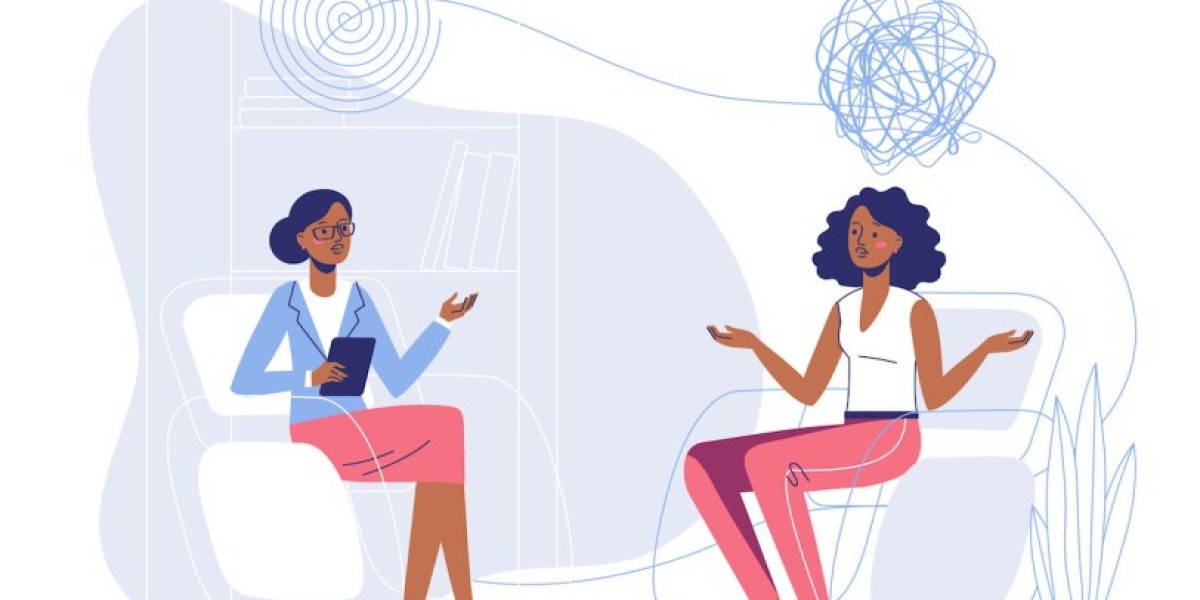Cognitive behavioral therapy (CBT) is a form of psychological treatment that has been shown to be effective for a variety of problems including depression, anxiety disorders, alcohol and drug use problems, marital problems, eating disorders, and serious mental illness. Numerous research studies suggest that CBT leads to a significant improvement in functioning and quality of life. In many studies, CBT has been shown to be as effective or more effective than other forms of psychological therapy or psychiatric medications.
It is important to emphasize that advances in CBT have been made on the basis of both research and clinical practice. In fact, CBT is an approach for which there is ample scientific evidence that the methods that have been developed actually produce change. In this way, CBT differs from many other forms of psychological treatment.
How does CBT work?
CBT is based on the concept that your thoughts, feelings, physical sensations, and actions are interconnected, and that negative thoughts and feelings can trap you in a negative cycle. CBT aims to help you deal with overwhelming problems in a more positive way by breaking them down into smaller parts.
You are shown how to change these negative patterns to improve the way you feel. Unlike other talk treatments, CBT deals with your current problems, rather than focusing on problems from the past. Find practical ways to improve your mood on a day-to-day basis.
When is CBT useful?
CBT is used to treat a variety of psychological problems including:
- Anxiety
- Anxiety disorders such as social phobia, obsessive-compulsive disorder, or Post-traumatic stress disorder
- Depression
- Low self-esteem
- Irrational fears
- Hypochondria
- Substance abuse, such as smoking, drinking, or other drugs
- Problem with the game
- Eating disorders
- Insomnia
- Marital or relationship problems
- Certain emotional or behavioral problems in children or adolescents.
What are the pros and cons of Cognitive Behavioral Therapy (CBT)?
Cognitive behavioral therapy helps you become more aware of your emotions, thoughts, and behaviors. After CBT, most people adopt healthier habits. CBT can't make stressful situations go away, but you can respond to them more positively and feel better overall. Many studies show that CBT is as effective or more effective than other forms of Psychoanalysis for depression or psychiatric medications.
Depending on your situation, you may feel a little more upset during therapy. Your therapist can help you work through these feelings. You can use new abilities to overcome negative emotions.
How long will I need Cognitive Behavioral Therapy (CBT)?
Cognitive behavioral therapy usually lasts 12 to 20 weeks. However, each person is unique and mental health conditions are complex, so the length of therapy may vary. Try not to get discouraged by the time it may take to better manage your thoughts and feelings and have a better quality of life. The important thing is that you are seeking help. Any progress is good progress.
Using CBT to treat anxiety
Everyone feels anxious sometimes. Anxiety serves as a means of protection and can increase your performance in stressful situations. For example, the rush of anxiety that often occurs before a job interview or a big run can improve your performance.
But for some people the feeling of anxiety is more general. This means that you always feel alert or fearful no matter what activity you are doing. This can be extremely distressing and get in the way of your daily life.
If your anxiety level begins to interfere with your ability to function, it's important to start learning some skills to cope with these anxious feelings. This is where CBT can help. It focuses on changing thought patterns and beliefs that are associated with and trigger anxiety.
Using CBT to treat depression
People with depression may have ongoing negative feelings about themselves, other people, and the world around them. This negative thought pattern can become automatic so that you don't realize when your judgment is irrational or unfair to yourself.
CBT can help people with depression by giving you tools to challenge negative thoughts and override them with more realistic and positive thought processes.
CBT is also used to help many more psychological problems. In some cases, other forms of therapy used at the same time may be recommended for better results. Talk to your doctor for more information and advice.
CBT and thoughts, feelings and behaviors
The main focus of CBT is that thoughts, feelings, and behaviors combine to influence a person's quality of life. For example, severe shyness in social situations (social phobia) may stem from thinking that other people will always find you boring or stupid. This belief could make you feel extremely anxious in social situations.
This could lead to certain behaviors in social situations, such as shaking, sweating, a fast heart rate, or other uncomfortable symptoms. Then you could be overwhelmed by negative emotions (like shame) and negative self-talk ("I'm an idiot"). Your fear of social situations could get worse with each bad experience.
CBT aims to teach people that it is possible to have control over their thoughts, feelings, and behaviors. CBT helps you challenge and overcome automatic beliefs and use practical strategies to change or modify your behavior. The result is more positive feelings, which in turn lead to more positive thoughts and behaviors.
A note from SOZO Centers
While it can be overwhelming to acknowledge and seek help from Telehealth for mental health conditions or emotional difficulties in your life, it's important that you do so. Cognitive behavioral therapy (CBT) can help you better understand and overcome the obstacles that prevent you from living a full and healthy life. Mental health professionals are experts in their field and have up-to-date knowledge of research and therapy strategies that can help you. Your mental health professional will tailor therapy to your situation and needs.



